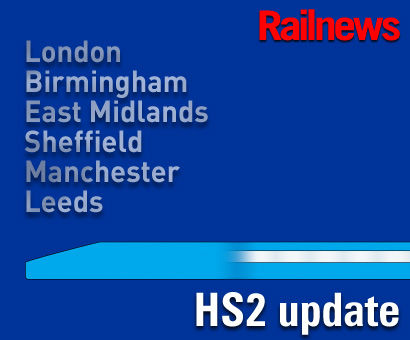A GROUP of academics are claiming that speeds on HS2 will be unnecessarily high, adding significantly to the costs.
They are calling for an independent assessment of 'less damaging' alternatives.
A major cause of their concern is the potential maximum speed of 400km/h, which the group says could be reduced to 300km/h.
One member of the group, Professor James Croll of University College London, told the BBC: "It is just vanity for the UK to have faster trains than the usual high-speed trains. The UK is far too small geographically to need an ultra-high speed network -- by the time the trains get up to speed it will be almost time to slow them down again.
"The decision to design for 400km/h has led to a succession of needlessly expensive knock-on effects in construction which will be saddling taxpayers with huge bills for a generation."
HS2 Ltd said cost reductions were being examined, and that the head of the civil service Jeremy Heywood is conducting an investigation. He is expected to report to his findings to the government soon.
Ben Ruse of HS2 Ltd said rail speeds were rising in other countries, adding: "The railway is being designed for the future. It anticipates faster speeds to ensure the railway can take up future technological innovations without having to create further new railways or adaptations to the HS2 route that would cause further impacts."
Some high speed trains have already broken the 300km/h barrier. Eurostar's new Siemens Velaro fleet, which entered service between London and Paris last November, is branded e320 because the Velaros can travel at 320km/h.
The Hybrid Bill which authorises Phase 1 of HS2 between London and Birmingham has passed all its Commons stages and is now being scrutinised by the House of Lords, which means changes are still possible. Ministers expect the Bill to receive Royal Assent this year, so that construction can begin in 2017.


